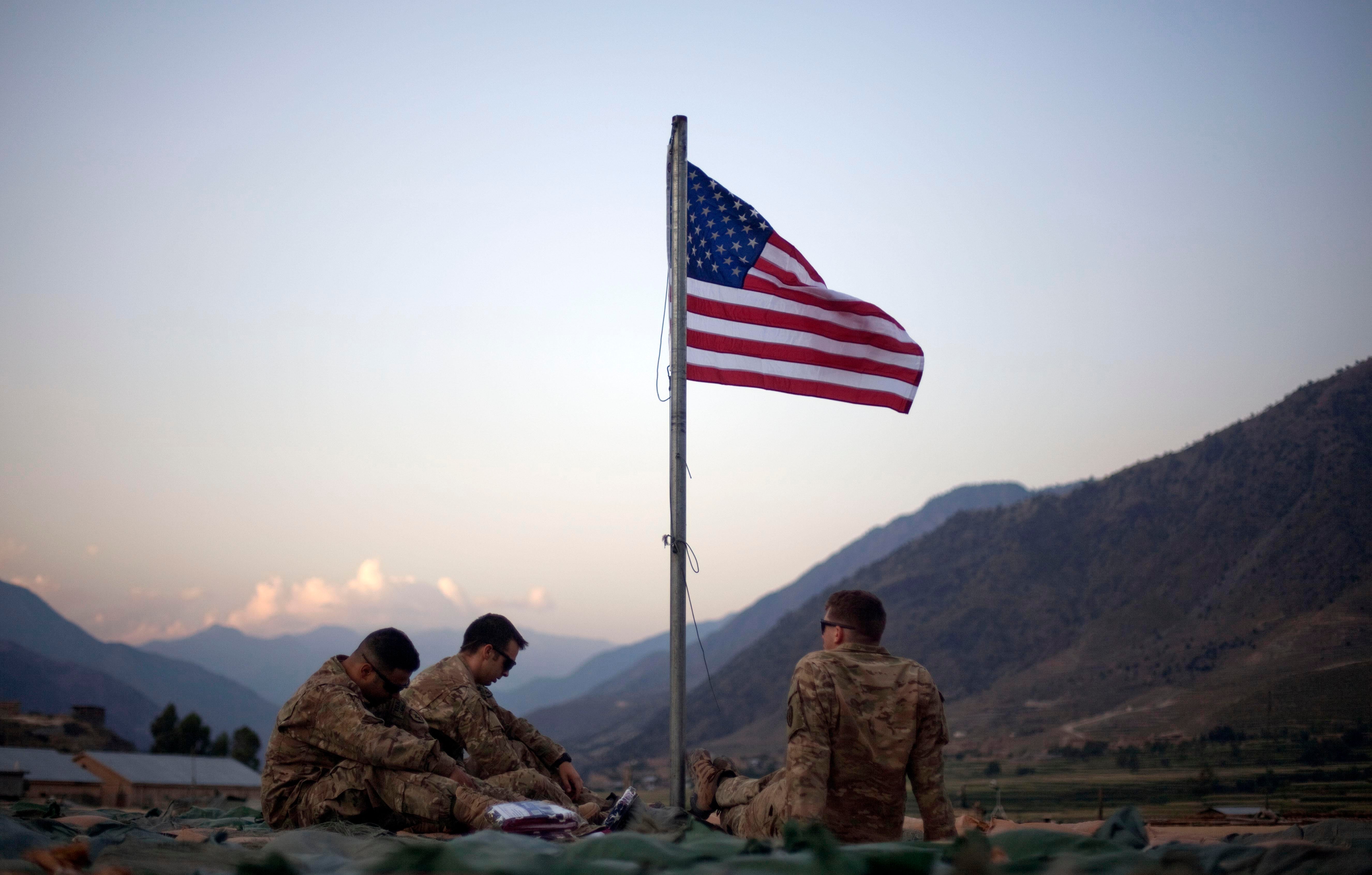Blinken in Afghanistan to sell Biden troop withdrawal
U.S. Secretary of State Antony Blinken is making an unannounced visit to Afghanistan to sell Afghan leaders and a wary public on President Joe Biden’s decision to withdraw all American troops from the country

Your support helps us to tell the story
From reproductive rights to climate change to Big Tech, The Independent is on the ground when the story is developing. Whether it's investigating the financials of Elon Musk's pro-Trump PAC or producing our latest documentary, 'The A Word', which shines a light on the American women fighting for reproductive rights, we know how important it is to parse out the facts from the messaging.
At such a critical moment in US history, we need reporters on the ground. Your donation allows us to keep sending journalists to speak to both sides of the story.
The Independent is trusted by Americans across the entire political spectrum. And unlike many other quality news outlets, we choose not to lock Americans out of our reporting and analysis with paywalls. We believe quality journalism should be available to everyone, paid for by those who can afford it.
Your support makes all the difference.U.S. Secretary of State Antony Blinken made an unannounced visit to Afghanistan on Thursday to sell Afghan leaders and a wary public on President Joe Biden’s decision to withdraw all American troops from the country and end America's longest-running war.
Blinken was meeting with Afghan President Ashraf Ghani chief executive Abdullah Abdullah and civic figures, a day after Biden announced that the remaining 2,500 U.S. soldiers in Afghanistan would be coming home by the 20th anniversary of the Sept. 11 terrorist attacks that led to the U.S. invasion.
His trip also came after NATO immediately followed suit, saying its roughly 7,000 non-American forces in Afghanistan would be departing within a few months, ending the foreign military presence that had been a fact of life for a generation of Afghans already reeling from more than 40 years of conflict.
Blinken sought to reassure the Afghan leadership that the withdrawal did not mean an end to the U.S.-Afghan relationship.
“I wanted to demonstrate with my visit the ongoing to commitment of the United States to the Islamic Republic and the people of Afghanistan,” Blinken told Ghani as they met at the presidential palace in Kabul. “The partnership is changing, but the partnership itself is enduring.”
“We respect the decision and are adjusting our priorities,” Ghani told Blinken, expressing gratitude for the sacrifices of US troops.
Blinken arrived in the Afghan capital from Brussels where he and Defense Secretary Lloyd Austin briefed NATO officials on the move and NATO chief Jens Stoltenberg announced the alliance would also be leaving.
Biden, Blinken, Austin and Stoltenberg have all sought to put a brave face on the pullout, maintaining that the U.S.- and NATO-led missions to Afghanistan had achieved their goal of decimating Osama bin Laden's al-Qaida network that launched the 9/11 attacks and clearing the country of terrorist elements that could use Afghan soil to plot similar strikes.
However, that argument has faced pushback from some U.S, lawmakers and human rights advocates who say the withdrawal will result in the loss of freedoms that Afghans enjoyed after the Taliban was ousted from power in late 2001.
Later, in a meeting with Abdullah, Blinken repeated his message, saying that “we have a new chapter, but it is a new chapter that we’re writing together.”
“We are grateful to your people, your country, your administration,” Abdullah said.
Despite billions of U.S. dollars in aid, Afghanistan 20 years on has a poverty rate of 52 per cent according to World Bank figures. That means more than half of Afghanistan’s 36 million people live on less than $1.90 a day. Afghanistan is also considered one of the worst countries in the world to be a woman according to the Georgetown Institute for Women Peace and Security.
For many Afghans the past two decades have been disappointing, as corruption has overtaken successive governments and powerful warlords have amassed wealth and loyal militias who are well armed. Many Afghans fear worsening chaos even more once America leaves.
Peace talks between the Taliban and the Afghan government are at a stalemate but are supposed to resume later this month in Istanbul.
Under an agreement signed between the Trump administration and the Taliban last year, the U.S. was to have completed its military withdrawal by May 1. Although Biden is blowing through that deadline, angering the Taliban leadership, his plan calls for the pull-out to begin on May 1. The NATO withdrawal will commence the same day.
“It is time to end America’s longest war,” Biden said in his announcement in Washington on Tuesday, but he added that the U.S. will “not conduct a hasty rush to the exit.”
“We cannot continue the cycle of extending or expanding our military presence in Afghanistan hoping to create the ideal conditions for our withdrawal, expecting a different result,” said Biden, who delivered his address from the White House Treaty Room, the same location where President George W. Bush announced the start of the war. “I am now the fourth United States president to preside over an American troop presence in Afghanistan. Two Republicans. Two Democrats. I will not pass this responsibility to a fifth.”
Biden, along with Blinken and Austin in Brussels, vowed that the U.S. would remain committed to Afghanistan’s people and development.
“Bringing our troops home does not mean ending our relationship with Afghanistan or our support for the country,” Blinken said. “Our support, our engagement and our determination remain.”
Austin also said that the U.S. military, after withdrawing from Afghanistan, will keep counterterrorism “capabilities” in the region to keep pressure on extremist groups operating within Afghanistan. Asked for details, he declined to elaborate on where those U.S. forces would be positioned or in what numbers.
_____
Associated Press Writer Kathy Gannon in Islamabad contributed to this report